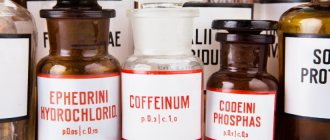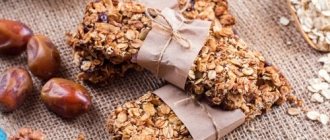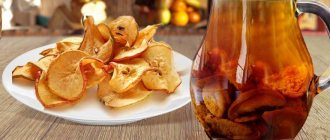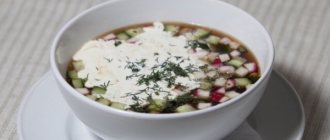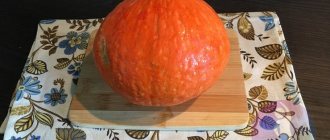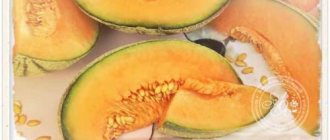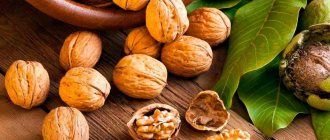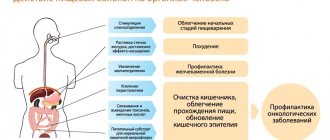Health benefits of dried fruits
Dried fruits retain most of the beneficial elements contained in fresh fruits. They are rich in fiber, vitamins, minerals, antioxidants, and essential amino acids. True, there are also a lot of carbohydrates there, from 36 g (pineapple) to 75 g (dates) per 100 g of product. Calorie content per 100 g ranges from 199 kcal (apple) to 296 kcal (cherry). Vitamin C disappears when dried. But dried fruits contain other substances in concentrated form due to loss of liquid. After drying, about 20% of the original amount remains.
The body needs sugar and other carbohydrates even during a diet. It's better to get them along with a whole range of nutrients and antioxidants, in the form of fructose and glucose, rather than sucrose.
A person wondering whether it is possible to eat dried fruits while losing weight should take into account that along with weight loss, vitamins, minerals, and other vital substances are removed from the body. Bones are deprived of potassium and calcium, the heart and nerves lack magnesium. And the diet is so poor that it is difficult to compensate for the deficiency of nutrients with food. It is dried fruits that contain the necessary substances in a small volume of the product. You just need to eat them wisely.
Harm from taking
The Poles have an excellent saying: “If it’s too much, it’s too bad.” Literal translation – what is excessive is bad. She gives the best answer to the question of whether it is possible to eat dried fruits on a diet. In limited quantities, the product is not only allowed, but will also provide invaluable benefits. If you overeat, it will add extra centimeters to your waist.
The main objection to dried fruits during a diet is their high calorie content and glycemic index, significant glucose content. But the body needs to somehow maintain its existence. It is better to get calories and sugar from foods rich in essential nutrients than to fill your stomach with food that has little nutritional value. And then treat the heart, liver, and skeletal system simply because they did not receive the components necessary for normal functioning.
But for a diet based on dried fruits to be beneficial for weight loss, the products must be of high quality. Here's what may await buyers on the shelves:
- All industrially produced dried fruits are treated with chemicals to increase shelf life. This is clearly stated in GOSTs. Even if we assume that the content of preservatives and other harmful substances does not exceed the norm, this is enough for an organism weakened by diet.
- Figs, bananas, and some other dried fruits are often first fried a little in cheap oil, treated with phenol to preserve their characteristic color, and only then dried. This is unacceptable when dieting and can lead to health problems.
- Bright, elegant, shiny multi-colored dried fruits most likely owe their beauty to the sugar used during processing. All that remains of the original product is the name and appearance. These are no longer full-fledged dried fruits, but sugar candies.
- Healthy raisins can only be of a not too presentable dark color. Golden color is obtained by soaking in alkali.
If dried fruits are harmful, it means you ate too much of them or the product was prepared with sugar, oil or chemicals.
How to store dried fruits at home
After purchasing, be sure to pour the dried fruits from the bag into a glass jar or natural fabric bag - this is the most environmentally friendly way of storage. You can also store dried fruits in wooden boxes or plastic containers. To keep the benefits of fruits as long as possible, place them in a dry, dark place.
But storing dried fruits in the refrigerator is dangerous: high humidity and proximity to other products can cause mold to form. Do not cut mold from dried fruit under any circumstances - it is very dangerous for the body. Throw away any spoiled fruit immediately.
If you follow these rules, dried fruits can be stored at home from six months to a year.
What dried fruits help you lose weight?
If weight loss is under the supervision of a doctor, it is he who must determine which dried fruits are allowed on the diet. It’s more difficult to lose weight on your own. On the one hand, the products contain a lot of calories and have a glycemic index of more than 50, on the other hand, they include components that promote weight loss.
The content of nutrients differs in different dried fruits. For dietary nutrition, the most important are:
- Prunes contain a lot of dietary fiber, which enhances intestinal motility. With its help, toxins and fats are removed faster. Dried fruit normalizes metabolism and has a beneficial effect on most organs, the skeletal and cardiovascular systems. Prunes improve mood, which is especially important when dieting - a woman “in sadness” can eat as much as a healthy body cannot process.
- Pineapple is considered a fat burning food. Dried fruits made from it are especially useful for weight loss. There, in addition to vitamins and minerals, bromelain, a fat-breaking enzyme, is preserved after drying. The fiber contained in pineapple helps eliminate waste, toxins, and relieves swelling.
- Raisins contain more vitamins and microelements than other dried fruits. It contains a lot of potassium, which during forced weight loss is removed from the body and requires replenishment, normalizes intestinal activity, and restores salt balance in case of dehydration. But the main thing is that raisins contain a lot of iodine, which is necessary for the normal functioning of the thyroid gland. It is this organ that often causes excess weight.
- Dried apricots are especially useful in diets for women over 40 years of age. It, like raisins, replenishes microelements that are quickly removed from the body during weight loss, especially potassium, magnesium, and calcium. Dried apricots normalize the activity of the heart, for which diet is a significant burden, and remove cholesterol. Pectin and fiber cleanse the intestines.
- Dates contain substances that regulate the level of fatty acids. It is simply irreplaceable for people who combine diet and exercise. Physical activity and dietary restrictions sometimes sharply reduce blood sugar levels, and 2-3 dates will help quickly bring it back to normal.
- Apple contains pectin, which activates metabolic processes, and fiber removes toxins.
- Figs normalize the activity of the thyroid gland.
Contraindications
Despite the high usefulness of the dried fruit diet, there are a number of contraindications to its use as a stimulant for weight loss:
- presence of diabetes mellitus;
- flatulence;
- dysbacteriosis;
- exacerbation of gastritis;
- stomach ulcer;
- intolerance to certain dried fruits;
- allergy.
If you find at least one indicator that suits you in the list, don’t despair. There are many other effective weight loss methods that lull the feeling of hunger and benefit the body.
When losing weight, dried fruits perfectly complement your diet and protect your figure. The main thing is to choose the right dietary menu and calculate the required amount of dry treats. The best decision would be to go to a nutritionist, where they will explain everything to you in detail and select a suitable diet.
What not to eat when losing weight
Beautiful, too bright dried fruits should be discarded. They were probably prepared with sugar, oil, or other dietary undesirable substances. You should not buy dried exotic fruits, about which little was known in Russia and neighboring countries a few years ago.
Traditional dried fruits, when there are no contraindications, you can eat everything. The question is how much. For example, 1-2 figs a day will bring great benefits without weight gain, 5 will ruin your diet, 10 will make your waist wider by several centimeters, 20 can cause nausea and health problems.
Dried fruits + nuts
Some 5-7 years ago, nuts were considered the enemy of all those losing weight and were prohibited in any diet. The reason was the large amount of fat and calories. But thanks to modern research, nutritionists have come to the conclusion that a small amount of nuts eaten during a diet will only be beneficial and will not slow down the process of losing weight.
Nuts contain fiber and protein - one of the main components of a proper diet. They also have a beneficial effect on overall energy.
The ideal combination when losing weight would be a mixture of dried fruits (75%) and nuts (25%). You can make healthy and tasty bars based on dried fruits, nuts and grains; you can read more about them here.
How to take dried fruits correctly
It depends on the time, method of administration, and amount of food eaten whether dried fruits will help you lose weight or make you gain weight even more. It is better to eat them in the morning or in the first half of the day, during or after the main meal. Dried fruits should not be consumed on an empty stomach. Before eating, they must be doused with boiling water.
Dosage
If you are fighting excess weight on your own, without the help of a nutritionist who lists all foods in grams and the time of their intake, you need to understand the one handful rule. You can eat any dried fruits in the morning. But there should be as many of them as can be hidden in a cupped palm.
This is even less than it seems: 1-2 figs, about 6-8 pieces of prunes or dried apricots, 10-15 dates. It all depends on the size of the dry fruit and your hand. But this is quite enough. For example, to stimulate intestinal function, 2-3 prunes are enough. You can only eat one name of dried fruit!
To enjoy them, you need to chew them well and wash them down with plenty of water or kefir. This way you can satisfy your hunger with other foods.
Contraindications
If a person has an allergy or intolerance to a certain fruit, it should not be consumed in dried form either. The product is contraindicated in case of exacerbation of ulcers or other gastrointestinal diseases, especially on an empty stomach. Diabetics can eat dried fruits only after the permission of the attending physician and in the doses recommended by him.
Such useful pineapples for weight loss may be incompatible with some antibiotics. Raisins are contraindicated in cases of high obesity, dried apricots are contraindicated in cases of hypotension and a low pulse. People with kidney stones should not eat dates. Nursing mothers are advised to avoid prunes - they can cause diarrhea and colic in the baby.
Everything is good in moderation. Dried fruits in small quantities will reduce the psychological stress of dieting and provide the body with substances that it does not receive due to a limited diet. Eating them in moderation will lead to weight gain and health problems.
How to choose the right dried fruits
In order for the weight loss process to go smoothly without compromising your health, it is important to know how to choose quality products correctly. This is especially true for mixtures of dried fruits and nuts. Remember a few rules and tips for choosing dried products:
- Any dried fruits (including mixtures) must be hermetically packaged.
- Dried fruits should not smell of acid or wine.
- The dried apricots should not be very soft and definitely not hard.
- Dried apricots and prunes should have no seeds.
- Avoid bright orange dried apricots and black shiny prunes - these are all dyes.
- There should be no plaque on dried fruits. The presence of dust, dirt, grayness is a sign of contamination or even the beginning of mold.
- Do not buy loose dried fruits in tents near the road - dirt and machine exhaust settle on them.
- If you doubt the freshness of dried fruits, ask the seller to show documents for the products. There must be a date and expiration date. If the seller refuses to show the documentation, immediately pass by.
- Avoid buying sticky and candied dried fruits. They were most likely dried using sugar syrup. High-quality and natural dried fruit should not stick to your hands and sugar crystals should not form on it.
Calorie table for dried fruits per hundred grams
| Dried fruits | Calorie content per 100 g |
| Dried apricots | 215 Kcal |
| Raisin | 230 Kcal |
| Dried apricots | 231 Kcal |
| Prunes | 231 Kcal |
| Dried apple | 231 Kcal |
| Dried pear | 240 Kcal |
| Dates | 250 Kcal |
| Figs | 271 Kcal |
| Berries | 275 Kcal |
When trying to calculate the permissible amount of dried fruit per day, always weigh the selected product, and do not count it out in pieces. There is no point in trying to calculate the required quantity in pieces, since the same dried fruits can be heterogeneous, having different sizes and weights. Because of this, you can easily make a mistake and exceed the permissible caloric content.
Calorie content and composition of dried fruits
The calorie content and chemical composition of dried fruits depend on the berry or fruit from which they were obtained. On average, calorie content ranges from 200 to 250 kcal per 100 g. This figure is much higher than in the original product, however, the concentration of useful elements in a serving of dried fruit will be several times higher than, for example, in an apple, apricot, pear, grapes and etc.
Let's look at the caloric content and quantitative indicator of sugar per 100 g of the most common types of dried fruits in the table:
| Product name | Sugar capacity, g | Calorie content, kcal |
| Dried apricots | 72,1 | 215,6 |
| Dried apples | 61,9 | 230,9 |
| Prunes | 69,1 | 232,1 |
| Dates | 74,1 | 291,9 |
| Dried pear | 63,2 | 250,1 |
| Figs | 77,8 | 256,8 |
| Raisin | 72,2 | 263,6 |
| Dried cherries | – | 290,1 |
| Dried apricots | 52,6 | 212,6 |
Despite the high calorie content of dried apples, it is this dried fruit that is most recommended to be consumed while on a diet, of course, in moderation: no more than 30-50 g per day.
Nutritional value of dried fruits per 100 g:
| Berry/fruit | Proteins, g | Fats, g | Carbohydrates, g |
| Dried apricots | 5,1 | 0,29 | 51,2 |
| Prunes | 2,4 | 0,8 | 57,6 |
| Figs | 0,8 | 0,3 | 13,8 |
| A pineapple | 0,5 | 0,2 | 10,8 |
| Dates | 2,6 | 0,6 | 68,8 |
| Raisin | 2,8 | 0,62 | 65,9 |
| Apples | 2,3 | 0,11 | 58,9 |
| Pears | 2,4 | 0,7 | 63,1 |
During the process of natural drying of fruits and berries, they decrease in volume due to the evaporation of water, but the amount of carbohydrates does not change in any way, so the calorie content of the finished product increases.
© finepoints — stock.adobe.com
The chemical composition of dried fruits is rich in a variety of vitamins, minerals and acids, which are so necessary for the proper functioning of the human body. The list of useful elements in each type of delicacy is varied, but all contain fructose, organic acids, glucose in large quantities, B vitamins, pectin, vitamins A and P.
In addition, dried fruits are rich in:
- calcium;
- iodine;
- gland;
- magnesium;
- potassium;
- sodium
Unfortunately, during the process of natural or other types of drying, as well as during the treatment of products with chemicals (which help keep dried fruits edible for a longer time), vitamin C is destroyed.
How to choose dried fruits?
The main criterion is naturalness. The more unsightly dried fruits look, the better. Choose wrinkled and dull fruits: unlike bright and shiny ones, they have undergone less chemical processing.
Photo: istockphoto.com
Most dried fruits (99%) are treated with glycerin (for shine) and sulfur dioxide - this is a preservative that gives the product an attractive appearance, protects against insects, and extends shelf life. In large quantities it is harmful to health. Therefore, purchased dried fruits must be soaked in boiling water for 15-20 minutes, and then rinsed 2-3 times with running water and only then eaten.


